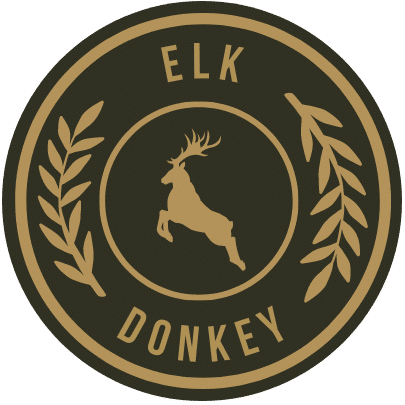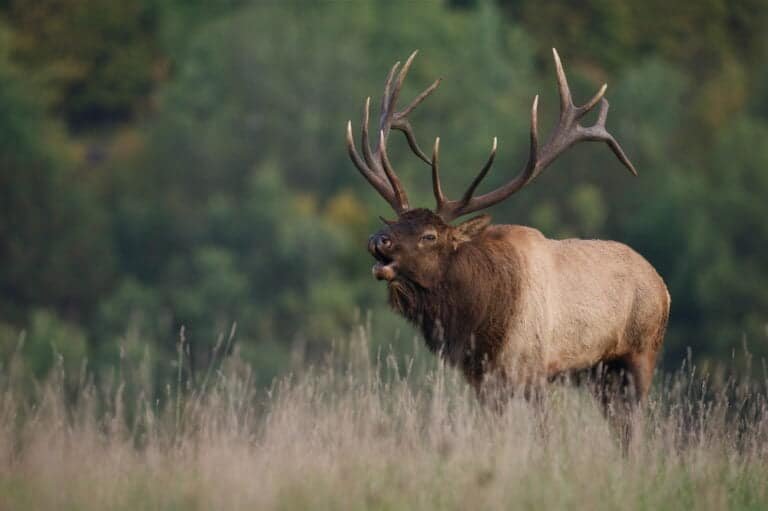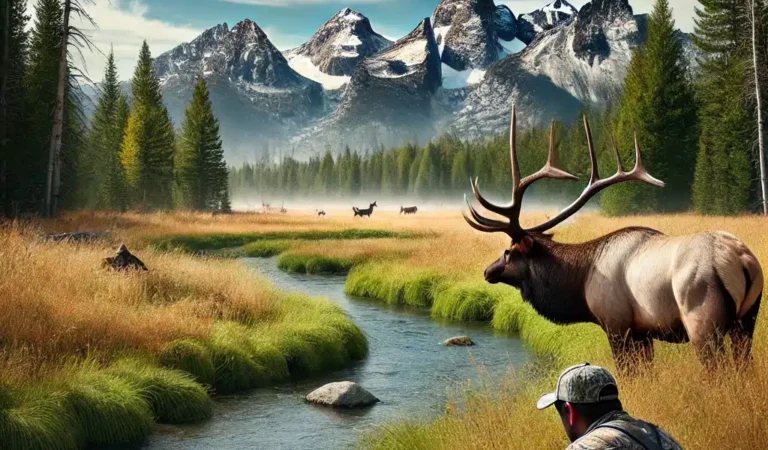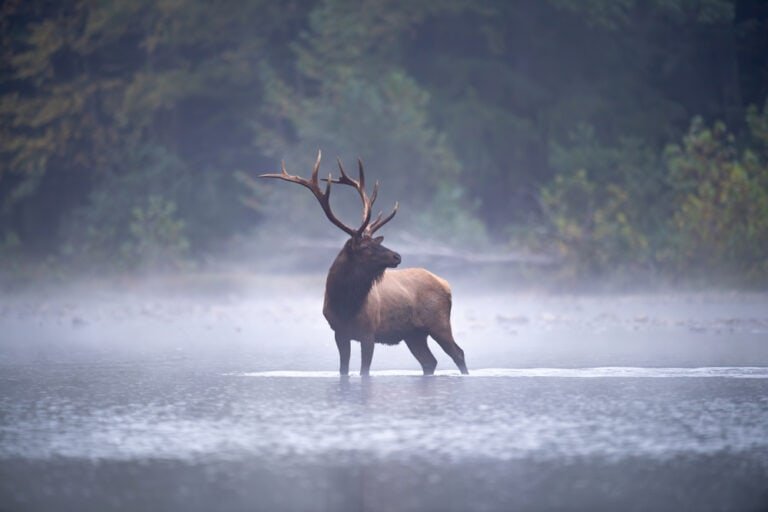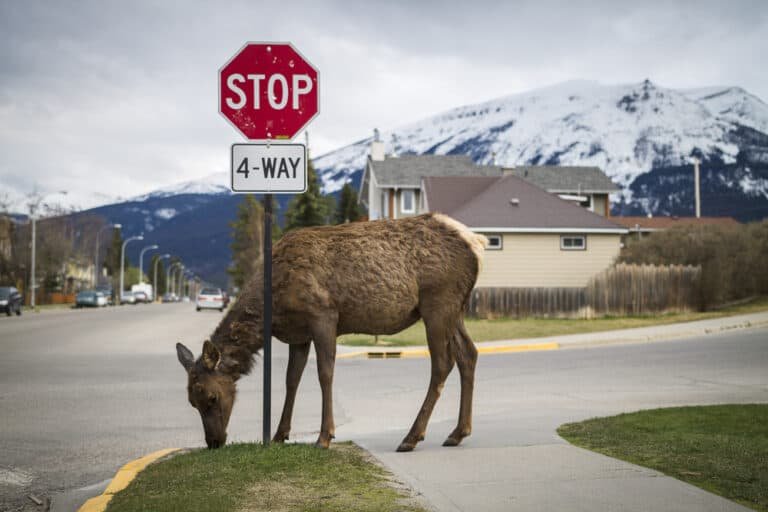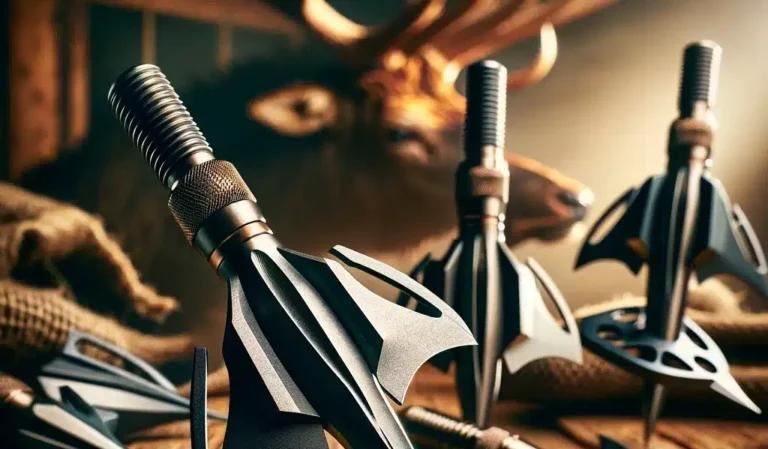The 7 Best Elk Hunting Destinations in the US
The bugle pierces the dawn silence, sending chills down your spine. Somewhere in the misty pines ahead, a bull elk is announcing his presence. This is the moment every elk hunter lives for – but finding yourself in the right place at the right time isn’t just luck. It’s about choosing the best elk hunting destinations.
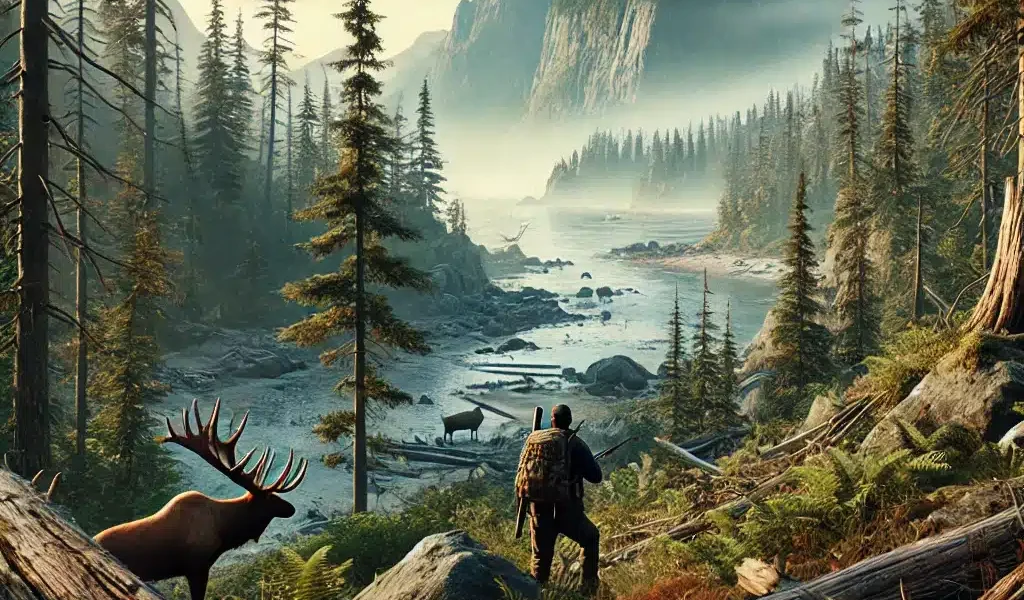
Thousands of hunters pack their gear every year and head out for that dream elk hunt. But with millions of acres of potential hunting ground across the western United States, picking the right destination can feel overwhelming. Whether you’re planning your first elk hunt or looking to try new territory, choosing the right location can make the difference between coming home with a story or coming home with a trophy.
This guide’ll walk you through the seven best elk hunting destinations in America, with insider tips from experienced hunters and local experts. From Colorado’s legendary herds to Arizona’s desert bulls, we’ll cover everything you need to know about these prime hunting spots – including when to go, how to access them, and what makes each location special.
When you finish reading, you’ll clearly understand which destination matches your hunting style, budget, and goals. So grab your favorite cup of coffee and explore the top elk hunting grounds our country offers.
Before We Start: What Makes a Great Elk Hunting Destination?
Before discussing specific locations, consider what matters when choosing your hunting grounds. It’s not just about where the elk are—it’s about finding a spot that matches your hunting style and goals.
First, consider the timing. The best hunting locations in September might differ completely from those in November. Early-season hunters often succeed at higher elevations where elk escape the heat, while late-season hunters might need to focus on migration routes and winter ranges.
Public land access is another game-changer. Some states offer millions of acres of public hunting grounds, while others require you to navigate a mix of public and private land. And let’s not forget about licenses – each state has its system for tags and permits, which can dramatically affect your hunting plans.
1. Colorado – The Elk Hunter’s Paradise
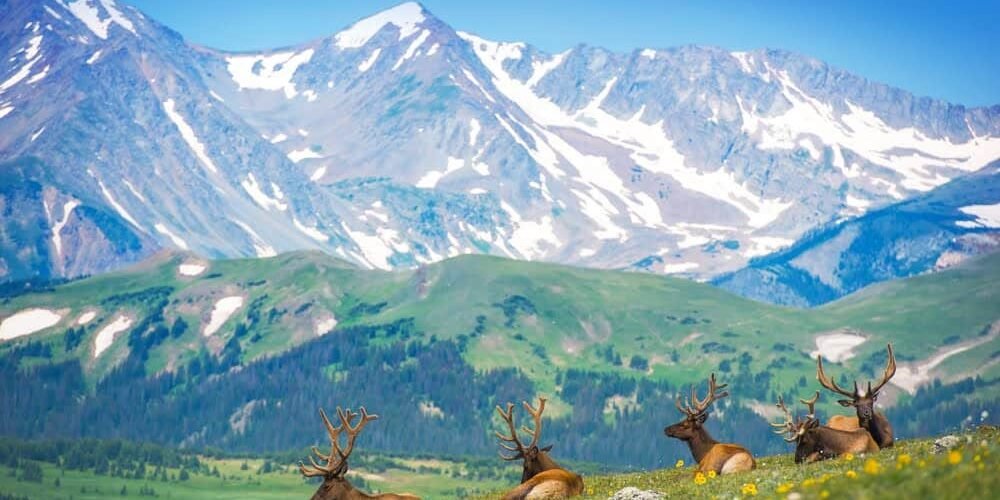
If elk hunting had a capital, it would be Colorado. Home to over 280,000 elk – the largest population in North America – this state guarantees you’ll find what you’re looking for.
What Makes It Special
- Huge elk population spread across diverse terrain
- Over 23 million acres of public land
- A mix of over-the-counter and draw tags are available
- Options for every skill level and hunting style
Best Areas
The White River National Forest tops our list, particularly around the Flat Tops Wilderness Area. Unit 12 and Unit 23 consistently produce both numbers and trophy bulls. The Routt National Forest offers excellent access and decent elk numbers for beginners.
When to Go
September’s archery season hits the prime rut, but October rifle seasons offer excellent opportunities with generally better weather. Plan your trip around the second or third rifle season for the best balance of elk activity and hunting pressure.
2. Montana – Wide Open Spaces
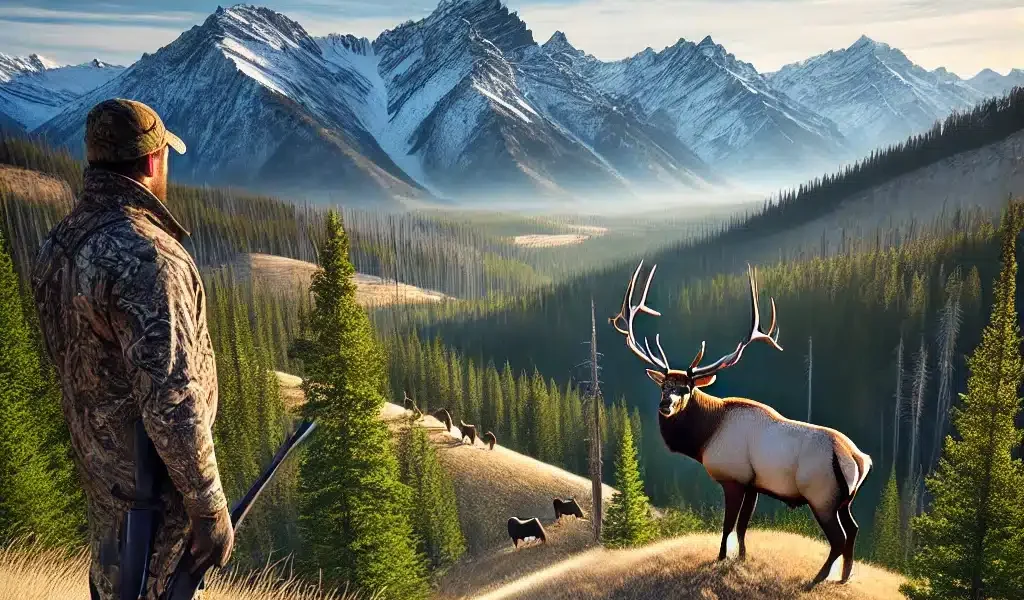
Montana isn’t just about numbers—it’s about the experience. With vast stretches of public land and some of the country’s most spectacular scenery, hunting here feels like stepping back in time.
What Makes It Special
- There is less hunting pressure than in Colorado
- Excellent public land access (over 30 million acres)
- Healthy elk populations in multiple regions
- Greater chance of a wilderness experience
Best Areas
The Bob Marshall Wilderness Complex is legendary for a good reason. For easier access, check out the Beaverhead-Deerlodge National Forest. Region 3, particularly around the Madison Range, consistently produces quality bulls and offers good drawing odds.
Local Know-How
Montana’s Block Management Program opens thousands of private land to public hunting. Smart hunters know to research these areas well before the season, as some of the best spots require advance permission or sign-up.
3. Wyoming – Quality Over Quantity
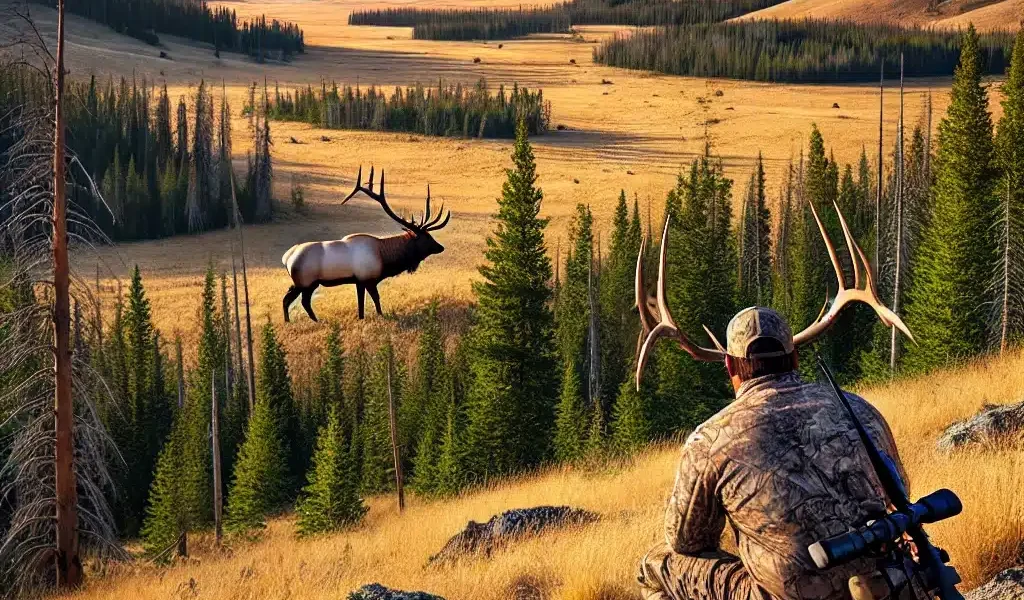
Wyoming might not have Colorado’s massive elk numbers, but what it lacks in quantity, it makes up for in quality. This is where patient hunters go to find trophy bulls in challenging terrain.
What Makes It Special
- Lower hunting pressure than neighboring states
- Excellent trophy potential
- True wilderness hunting experiences
- Point system that rewards persistence
Best Areas
The Greater Yellowstone Ecosystem, particularly around the Bridger-Teton National Forest, holds some of Wyoming’s finest elk hunting. Units 54-56 in the Snowy Range offer more accessible terrain with good elk numbers. For a real challenge, the Wind River Range promises solitude and big bulls – if you’re willing to work for them.
Insider Tips
Don’t overlook Wyoming’s general areas. While limited quota areas get all the attention, some general units offer surprisingly good hunting with over-the-counter tags.
4. Idaho – The Hidden Gem
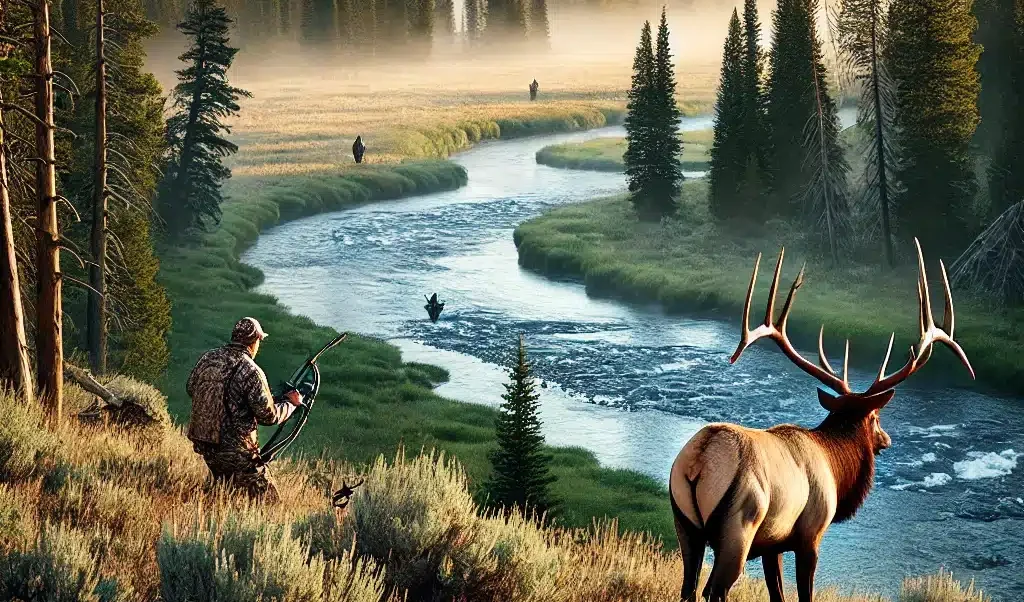
Idaho might be the best-kept secret in elk hunting. With over-the-counter tags available and millions of acres of public land, it offers some of the best opportunities for ambitious hunters on a budget.
What Makes It Special
- It is more affordable than many other states
- Excellent over-the-counter opportunities
- There is less competition than in Colorado or Montana
- Mix of different elk subspecies
Best Areas
The Panhandle region (Units 4 and 7) offers thick forests and healthy elk herds. The Frank Church River of No Return Wilderness provides a true backcountry experience. For better access, the Clearwater region consistently produces good numbers of elk.
Success Strategy
Idaho’s steep terrain demands physical fitness, but it also means less competition. Focus on areas 2-3 miles from roads – less pressure and more elk.
5. Utah – Trophy Country
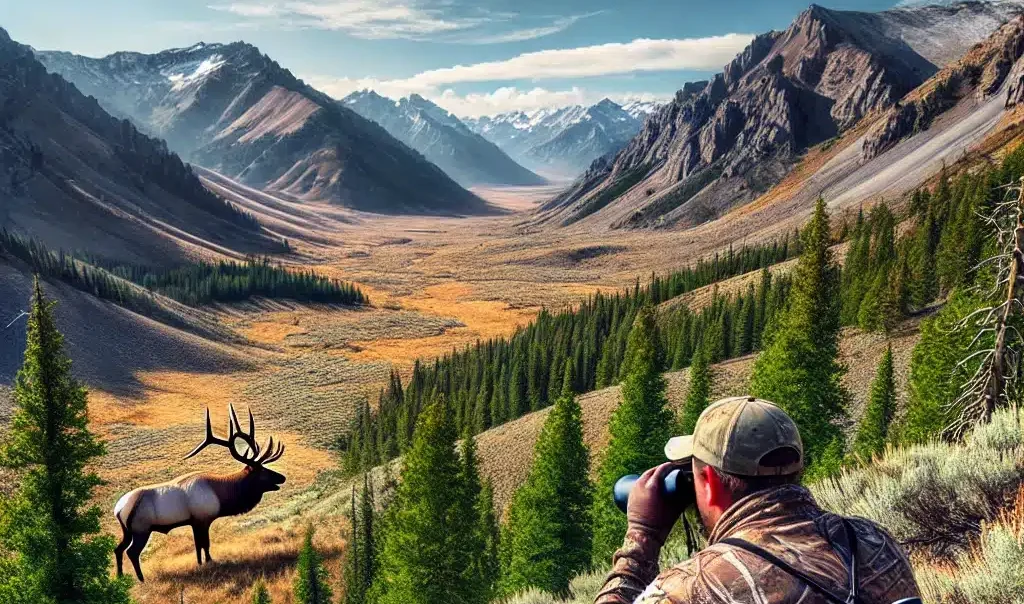
Utah’s limited entry system might make it harder to draw a tag, but those who do are in for some of the finest elk hunting in the country. This is where monster bulls grow old.
What Makes It Special
- Exceptional trophy potential
- Well-managed herds
- Diverse terrain options
- High success rates for tag holders
Best Areas
The Wasatch units consistently produce trophy bulls, while the Book Cliffs offer a unique desert elk experience. The Manti unit provides better drawing odds while still maintaining quality. For the patient hunter, the San Juan unit remains one of the premier elk hunting destinations in the country.
Application Strategy
Utah’s point system rewards persistence. Focus on units with lower point requirements while building points for premier areas. Consider hiring a guide – their success rates often justify the investment.
6. Oregon – Coastal and Mountain Options
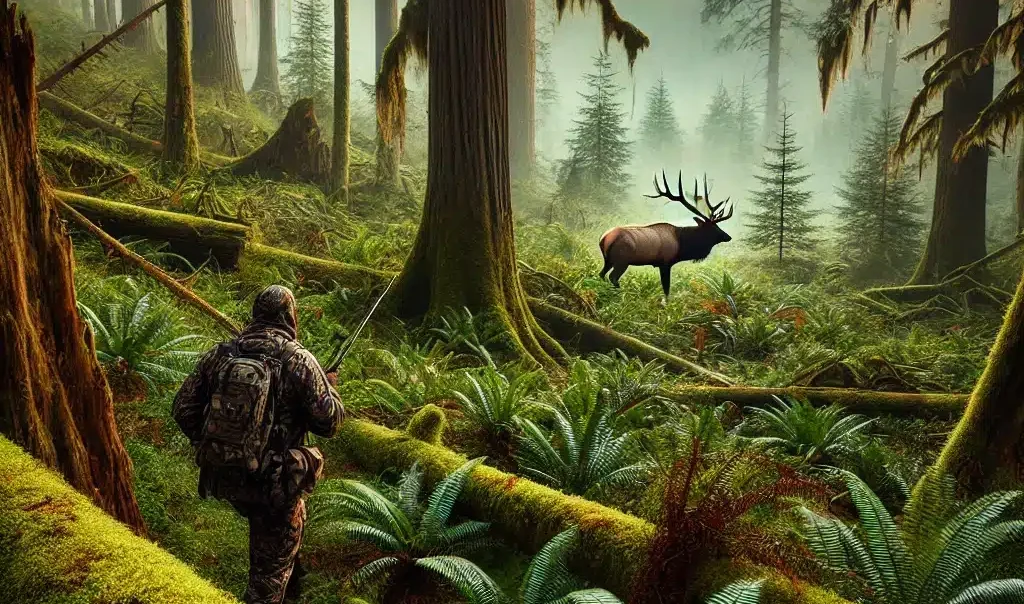
Oregon offers something unique in the elk hunting world: a chance to hunt two distinct subspecies of elk. From Roosevelt elk in the coastal forests to Rocky Mountain elk in the eastern ranges, Oregon is like getting two states in one.
What Makes It Special
- Only state with both major elk subspecies
- Less competitive than other western states
- Diverse hunting environments
- Reasonable tag prices
Best Areas
For Roosevelt elk, the Siuslaw National Forest offers excellent opportunities. The Cascade Range, particularly around Mount Hood National Forest, holds healthy Rocky Mountain elk populations. Units 246 and 248 consistently produce good bulls with reasonable drawing odds.
Weather Warning
Coastal hunts mean rain – lots of it. Pack accordingly and be prepared for challenging tracking conditions. Eastern Oregon offers drier conditions but more extreme temperatures.
7. Arizona – Desert Elk Challenge
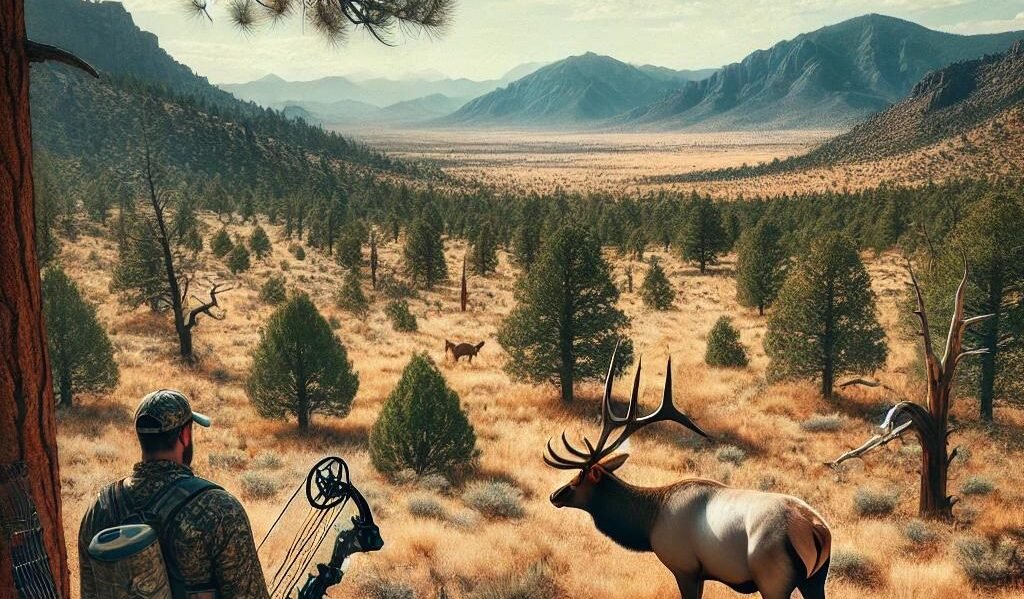
Don’t let the desert fool you – Arizona produces some of the biggest bulls in the country. While tags are hard to draw, the quality of hunting makes it worth the wait.
What Makes It Special
- Potential for genuine giant bulls
- Unique desert hunting experience
- Less physical demands than mountain hunting
- High success rates for tag holders
Best Areas
Units 9 and 10 near Flagstaff are legendary for trophy bulls. The White Mountains units (1 and 27) offer excellent hunting with slightly better drawing odds. For pure adventure, Unit 8 provides a true desert elk experience.
Draw Strategy
Patience is key. Focus on building points while applying for multiple units to increase your odds. Consider hiring a guide – their local knowledge is invaluable in the desert terrain.
Practical Tips for Success

Before you start applying for tags, keep these key points in mind:
Application Timing
- Most western states have application deadlines between January and May
- Start planning at least a year ahead
- Consider joining a hunt-planning service to manage multiple applications
Gear Considerations
- Invest in quality optics – western hunting means glassing
- Get boots broken in well before your hunt
- Layer your clothing system for variable temperatures
- Don’t skimp on your pack – you’ll need to haul meat
Guide or DIY
- First-time hunters should consider a guide
- DIY hunters should plan on extensive scouting
- Factor guide costs into your overall budget
- Research outfitters thoroughly – ask for references
Conclusion
The perfect elk hunting destination depends on your goals, budget, and hunting style. Colorado offers the highest success rates and easiest access. Montana and Wyoming provide more solitude and trophy potential. Idaho and Oregon are great for budget-conscious hunters wanting over-the-counter opportunities. Utah and Arizona offer the chance at monster bulls – if you’re patient enough to draw a tag.
Successful elk hunting isn’t just about location – it’s about preparation. Start planning early, get in shape, and do your research. Whether you’re after your first elk or your biggest bull yet, one of these seven destinations will help make your dream hunt a reality.
Ready to start planning? Check application deadlines and tag prices for your top choices. The sooner you start, the better your chances of success when opening day arrives.
